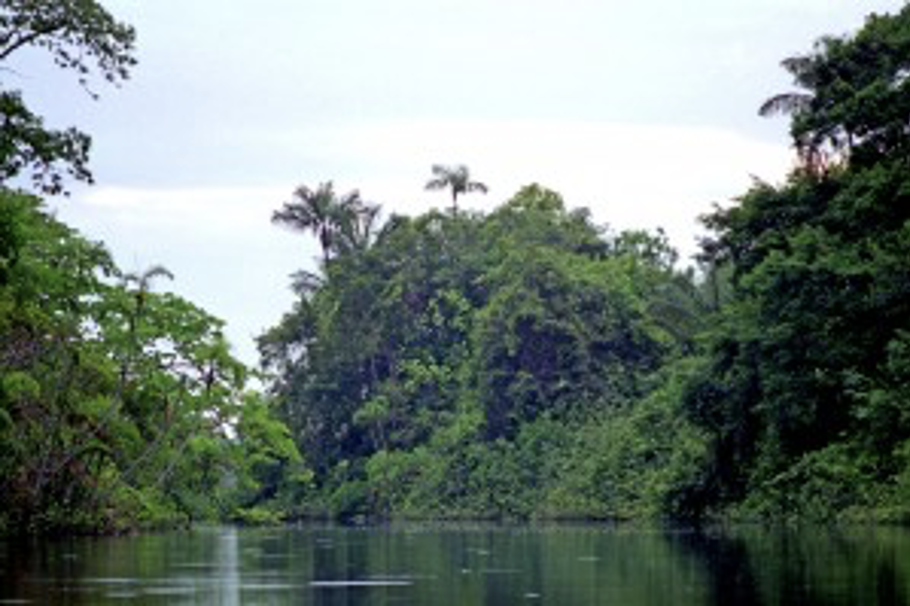(First published on November 7, 2018)
Anna Berti Suman
In December 2016, we published a blog post on the Chevron’s Ecuador ‘saga’, presenting the case as an example of the failure of the global environmental justice system. We presented five different scenarios of the battle for justice that since 1993 the Ecuadorean indigenous plaintiffs fight against the Chevron oil giant. Among these fronts, we here zoom in on the scenario that sees Chevron Corporation and its subsidiary Texaco Petroleum Co. against the Republic of Ecuador, the so-called ‘Chevron III’ case [1]. The case was initiated in 2009 by the company under the U.S.-Ecuador Bilateral Investment Treaty (BIT) before the Permanent Court of Arbitration in The Hague [2]. Chevron requested the arbitral panel to declare the State of Ecuador (through Petroecuador, the oil public firm part of the Ecuadorean consortium in which Texaco operated) as the exclusively liable entity for any judgment issued in the Ecuadorean litigation, Chevron vs. Aguinda. Specifically, the arbitral panel was asked to invalidate the $ 9.5 billion dollars judgement rendered against Chevron in Ecuador in 2011 that found the company guilty for its oil dumping in the Ecuador’s Amazon region where Texaco (later acquired by Chevron) operated between 1964 and 1992. The judgement, issued in 2011 by the Ecuadorean Supreme Court, was recently confirmed by the Ecuadorean Constitutional Court [3]. Chevron’s argument is based on two grounds: first, the company lamented the violation of the U.S.-Ecuador BIT inasmuch as the State of Ecuador did not grant a fair trial to the company in the Ecuadorean judgment. In addition, Chevron defended that it was released from any liability by the Republic of Ecuador by signing an agreement with the State in 1998 absolving the company of any future responsibility for its past operations in Ecuador.
On August 30, 2018, the Permanent Court of Arbitration released an award in favour of Chevron, finding that the Republic of Ecuador violated its obligations to protect U.S. companies under the U.S.-Ecuador BIT and international law. The arbitral panel said that the 2011 Ecuador Supreme Court’s ruling had been obtained through fraud, bribery and corruption, thus violating Chevron’s right to a fair trial in Ecuador. The tribunal consequently held that the company is not obliged to comply with the $9.5 billion judgment [4]. In occasion of the Arbitration Court’s decision, Pablo Fajardo, lawyer of the Union of Affected People by ChevronTexaco (UDAPT) representing the 30.000 victims of the Chevron’s oil contamination, and Justino Piaguaje, President of the Secoya Indigenous people, visited Tilburg University. In a seminar organized by Professor Jonathan Verschuuren and Anna Berti Suman at Tilburg Law School on October 26, the guests discussed the Chevron-Ecuador case in light of the recent judgement, reflecting on the applicability of the award against the Ecuadorian plaintiffs and on the broader questions that such an award raises. Letty Fajardo Vera and Suzanne Hagemann, spokespersons of the UDAPT respectively in the Netherlands and in Switzerland, and Charlie Holt, legal counsel for Greenpeace International in Amsterdam, joined the seminar as discussants.
Mr. Piaguaje introduced the participants to the reality of life ‘on the side’ of the oil contamination left by Chevron and what this means not only for human health but also for the preservation of the unique indigenous culture and lifestyle. Mr. Fajardo continued the discussion with a focus on the legal questionability of the award. From a strictly legal point of view, Fajardo stressed that the allegedly violated U.S.-Ecuador BIT was signed on August 27, 1993, and entered into force on May 11, 1997, which is five years after the termination of Texaco’s operations in Ecuador. However, the arbitral panel applied the BIT retroactively to facts occurred prior to its entry into force. Secondly, it is pretentious that an arbitral panel can affect the Ecuadorean Aguinda ruling, because it cannot have any jurisdiction over the Aguinda plaintiffs that did not even appear in the arbitral trial. In addition, the alleged release from responsibility granted to the company by the Ecuadorean government when the company terminated its operations in Ecuador only regards government’s claims and not private parties’ claims like those of the Aguinda plaintiffs, as also stated in the 2011 Ecuadorean judgment [5].
The recent development of the case inspired a discussion on a number of aspects. First, the stand of the Permanent Court of Arbitration vis-à-vis victims of environmental crimes has been questioned. As Fajardo stressed, it is inadmissible for an arbitral panel to order a State to invalidate a judgment issued in a judicial process between private individuals and ratified by all national judicial instances. The award puts the commercial interests of companies before the human rights of the affected communities. The risk that bilateral treaties may act as a shield protecting transnationals from accountability for human rights violations emerged. In addition, the ruling clearly undermines the sovereignty of the Ecuadorean State and its judicial independence. By asking Ecuador to invalidate the 2011 judgment, the arbitral tribunal is compelling the State to violate its constitutional norm, to disrespect the independence of functions, and to jeopardize the human rights of the Ecuadorian citizens. Overall, the dangerous precedent that this arbitral decision may set was manifested. As a matter of fact, the case risks to become a precedent for releasing from responsibility companies that, with the complicity of states, commit environmental crimes against human beings. The award represents a failure or lack of environmental justice in a system that appears rather dominated by corporate impunity.
Photo credits: seminar photos by Letty Fajardo Vera & UDAPT (bottom photo showing Pablo Fajardo, Charlie Holt, and Justino Piaguaje); Cuyabeno rainforest photo by Jonathan Verschuuren
[1] PCA Case No.2009-23, Chevron Corp. and Texaco petroleum Co. vs. the Republic of Ecuador.
[2] See Chevron’s Notice of International Arbitration Against Government of Ecuador.
[3] Case No. 174-2012, verbal proceeding No. 174-2012, Maria Aguinda Salazar y otros v. Chevron Corporation, Quito, November 12, 2013.
[4] For more information on the case see A universal obligation of enforcing environmental justice? The Chevron-Texaco case as an example of the actual system’s failure.
[5] Ruling of Presiding Judge Nicolas Zambrano Lozada, Provincial Court of Sucumbíos, 14 February 2011, pp.34, 176.



